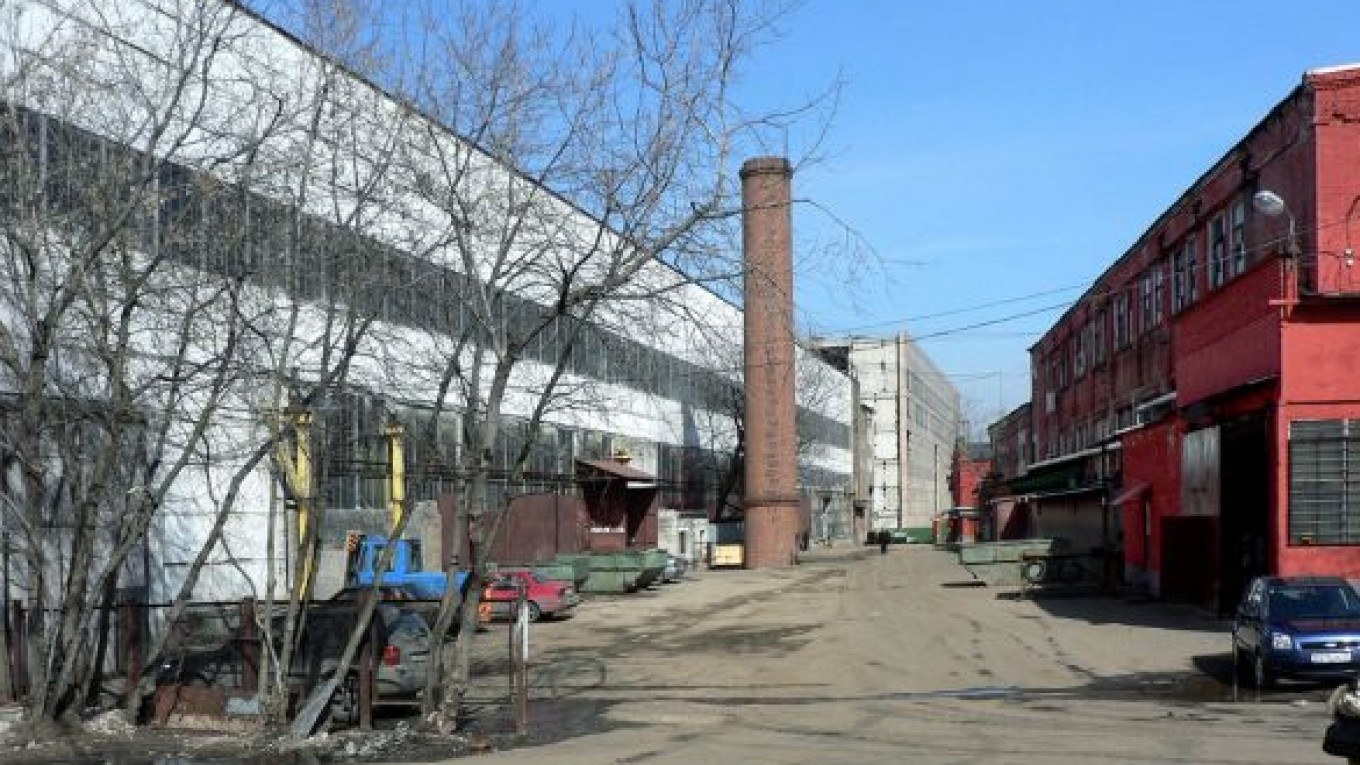Only 52 percent of the 7,839 hectares in Moscow zoned for industrial activity is in use by industrial or scientific enterprises, according to the city's general plan, but the authorities are working on a strategy to change that.
The remaining space is either rented out as cheap offices, used for dumping garbage or not used at all.
In the absence of government initiative, commercial real estate has appeared only where owners have had the will to push through their own development projects, one real estate developer said. As a result, only the lucrative city center has been cleared of defunct industrial zones.
City Hall has decided to take action. Three strategies are being considered to stimulate development, Acting Deputy Mayor Andrei Sharonov said earlier this month.
Under the first option, the city would buy industrial land, draft project plans and then look for investors to develop the sites under a "mixed use" approach. The risk for the budget is that state resources could be abused: As soon as owners get wind of the scheme, they may jack up their prices.
Option two is to negotiate with property owners. "This is a longer and more complex procedure, and does not guarantee success. We would need to find the right combination of carrots and sticks and make the correct project plan so that everyone understands what can be done on any given plot of land," Sharonov said.
The third option would be to create mutual funds, possibly with the participation of the city. Attracting investors, these funds would either buy or be given operational control of assets on industrial plots. The original owners would receive a share in the fund in accordance with the assessed value of the transferred property, while management companies would be formed to oversee development.
City Hall has a priority list of 34 industrial sites, but as yet none of the proposed schemes are functional, Sharonov said. If these territories are left as they are, they will simply decay, he added.
Other tools at the authorities' disposal include tweaking rent charges and fines. On Jan. 1, 2013, the overall cadastral value of land in Moscow rose 2.5 times, while some industrial locations saw rises of 7 to 300 times their original value, a spokesman of the city's industry department said. This increase of costs may serve as an incentive to owners, since it will be harder to sit on idle assets.
City Hall's approach is overly simple, said Alexander Ovanesov, a partner at Strategy Partners, a consultancy belonging to Sberbank. "The city should set its priorities for what it wants to see on former industrial territory," he said.
Clarity from the authorities is necessary if owners are to understand how to develop their property, said Aleksei Zelikso, deputy director of Santechprom, which is situated on an industrial plot in northeast Moscow.
The principle of "mixed use" is key, said Sharonov, to facilitate the creation of jobs, housing, social infrastructure, retail sites, entertainment facilities and parks.
Tens of planning projects for industrial zones are in process at the city's architectural planners. Only two have so far been approved — Lenino and Donskiye Ulitsy.
A Message from The Moscow Times:
Dear readers,
We are facing unprecedented challenges. Russia's Prosecutor General's Office has designated The Moscow Times as an "undesirable" organization, criminalizing our work and putting our staff at risk of prosecution. This follows our earlier unjust labeling as a "foreign agent."
These actions are direct attempts to silence independent journalism in Russia. The authorities claim our work "discredits the decisions of the Russian leadership." We see things differently: we strive to provide accurate, unbiased reporting on Russia.
We, the journalists of The Moscow Times, refuse to be silenced. But to continue our work, we need your help.
Your support, no matter how small, makes a world of difference. If you can, please support us monthly starting from just $2. It's quick to set up, and every contribution makes a significant impact.
By supporting The Moscow Times, you're defending open, independent journalism in the face of repression. Thank you for standing with us.
Remind me later.






